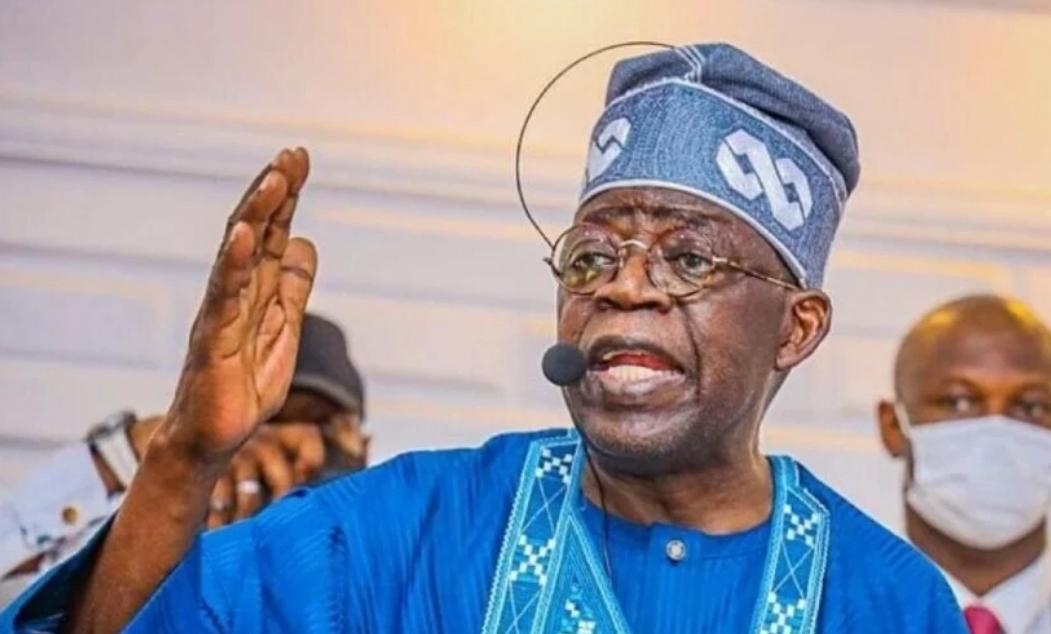News
We’ve met 2025 revenue target early, no longer reliant on borrowing – Tinubu
Published
4 hours agoon

President Bola Ahmed Tinubu has declared that Nigeria has achieved its 2025 revenue target ahead of schedule, a milestone he says will ease the country’s dependence on borrowing to fund its budget.
Speaking on Tuesday at the Presidential Villa in Abuja while receiving stakeholders of The Buhari Organisation, Tinubu revealed that the government’s aggressive drive to expand non-oil revenue sources has paid off.
According to the President, revenue projections for the year were fully met by August 2025, underscoring his administration’s commitment to fiscal discipline and economic sustainability.
“Today I can stand here before you to brag: Nigeria is not borrowing. We have met our revenue target for the year and we met it in August,” Tinubu told the delegation, which included former Nasarawa State Governor, Sen. Tanko Al-Makura, and other APC chieftains.
The President also said the exchange rate had stabilised after initial challenges, noting that the naira had appreciated from over ₦1,900/$ to about ₦1,450/$ since he unified the foreign exchange windows in 2024.
“Nobody is trading pieces of paper for exchange rate anymore. You don’t have to know a CBN governor to do your business. Just export, import and create jobs for our people,” he added.
The 2025 Appropriation Act projected a total revenue of ₦18.32tn to fund a ₦28.78tn budget. This included ₦7.94tn in oil revenue and ₦10.39tn from non-oil sources, reflecting the administration’s ongoing drive to diversify Nigeria’s income base away from oil dependence.
The budget assumed an average oil production of 1.78 million barrels per day at $77.96 per barrel, with a benchmark exchange rate of ₦750 to the dollar.
Tinubu also addressed concerns over U.S. President Donald Trump’s trade policies, which imposed a blanket 10 per cent tariff on imports and country-specific levies of up to 50 per cent earlier this year. Nigeria currently faces a 15 per cent duty under the regime, effective since August.
Despite this, the President expressed confidence that Nigeria’s economic reforms would cushion any negative impact.
“If non-oil revenue is growing, then we have no fear of whatever Trump is doing on the other side,” he said.
Trump’s second-term “Liberation Day” policy, unveiled in April, has raised concerns globally for its protectionist approach. While Nigeria’s crude oil and gas exports remain exempt from the tariffs, analysts warn that global demand disruptions could affect oil producers like Nigeria.
Tinubu stressed that his government was focused on resilience through agricultural mechanisation and food security.
“I have just signed off on a massive mechanisation programme, with training centres across every region. If we remove hunger, we have defeated poverty,” he said.
The President also pledged to honour his predecessor with the construction of a “Buhari House,” describing it as “a house of joy and prosperity.”
Encouraging party unity, he added: “Don’t let anybody threaten you with uncertainty. We are on the path to Nigeria’s recovery. You will have joy at the end of this journey.”
Reflecting on the early days of the APC merger in 2013, Tinubu recalled his debates with then-General Muhammadu Buhari over the party’s logo.
“We disagreed to agree. We even argued on symbol. He (Buhari) insisted on parliament, and I insisted on broom. He’s so stubborn,” Tinubu said.
The broom, symbolising collective resolve to sweep away corruption and bad governance, eventually became the party’s emblem. Tinubu played a leading role in the merger that united the ACN, CPC, ANPP, and a faction of APGA into the APC.
In their remarks, APC stakeholders reaffirmed their support for Tinubu’s leadership. Former Governor Al-Makura praised him for the state burial and honours accorded to Buhari, calling it a “powerful statement of loyalty and legacy.”
“You did not only bury Muhammadu Buhari, you honoured him with dignity. For that, Mr President, we thank you from the depth of our hearts,” Al-Makura said.
He added that Buhari and Tinubu shared not just a political alliance but a vision of discipline, justice, and economic sovereignty, which laid the foundation for the “Renewed Hope” agenda.
Speaker of the House of Representatives, Tajudeen Abbas, also dismissed suggestions that former CPC members had been sidelined under the Tinubu government.
“We are together with you today, tomorrow, and forever,” Abbas said, assuring that the CPC would mobilise full support for Tinubu ahead of the 2027 elections. He also thanked the President for appointing former CPC members as governors and senior officials in his administration.
You may like

Kano govt cautions against parallel elders council

We’ve met 2025 revenue target early, no longer reliant on borrowing – Tinubu

Lagos govt resumes second phase of Ogudu-Ifako Bridge repairs

Kano-based female journalist gets African media network appointment

JUST IN: FG approves increase in electricity tariff


